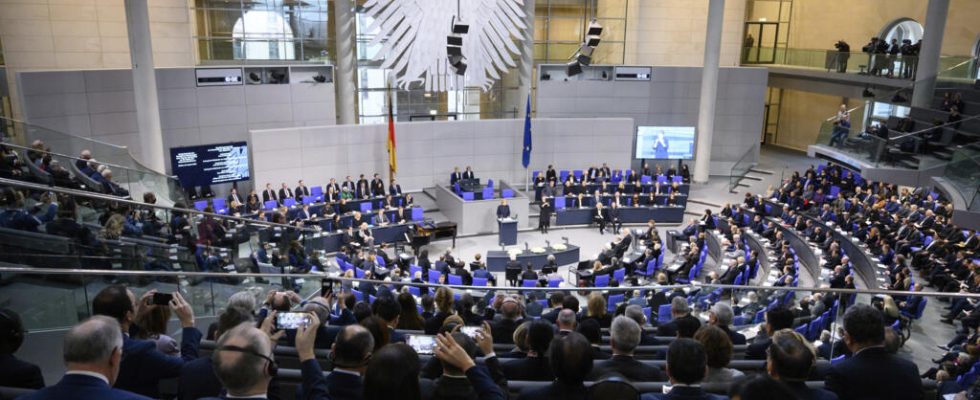The Bundestag was partly scuttled this morning, to reduce the number of its elected officials. The deputies of the Bundestag adopted the reform text of the electoral law, which will make it possible to contain the plethoric growth in the number of deputies, by reducing the representation of the small parties. No democracy in the world has as many elected members as the 736 members of the Bundestag.
With our correspondent in Berlin, Nathalie Versieux
In 20 years, the chamber has grown by 133 deputies. And without reform of the electoral law, we would soon have to push the walls, because growth could continue, as Germany applies to the letter the principle that every vote counts.
“ This reform allows a reduction in the number of deputies from 736 today to 630 in the future. And it guarantees that there will be no further increase in the number of deputies in the future, as was already predicted. There are calculations that estimate that we would have increased to more than 800 deputies in the next legislature, which would make the Bundestag by far the largest parliament in the world in relation to the country’s population. “, explains the political scientist Uwe Volkmann, of the university of Frankfurt.
A disadvantage for small parties
736 MPs also means 5 600 parliamentary attachés and 3 000 officials, responsible for the proper functioning of the institution, all of whom are paid at the expense of the taxpayer. For decades, all parties have agreed that this unpopular inflation cannot continue. But until now, the conservative party of Angela Merkel had opposed a reform which will disadvantage the small parties, in particular the Bavarian conservatives and the extreme left.
This drastic cut will save 340 million euros and will end more than one career in the six parties that the country now has.
►Also listen Germany: Bärbel Bas, new president of the Bundestag, from shadow to light
